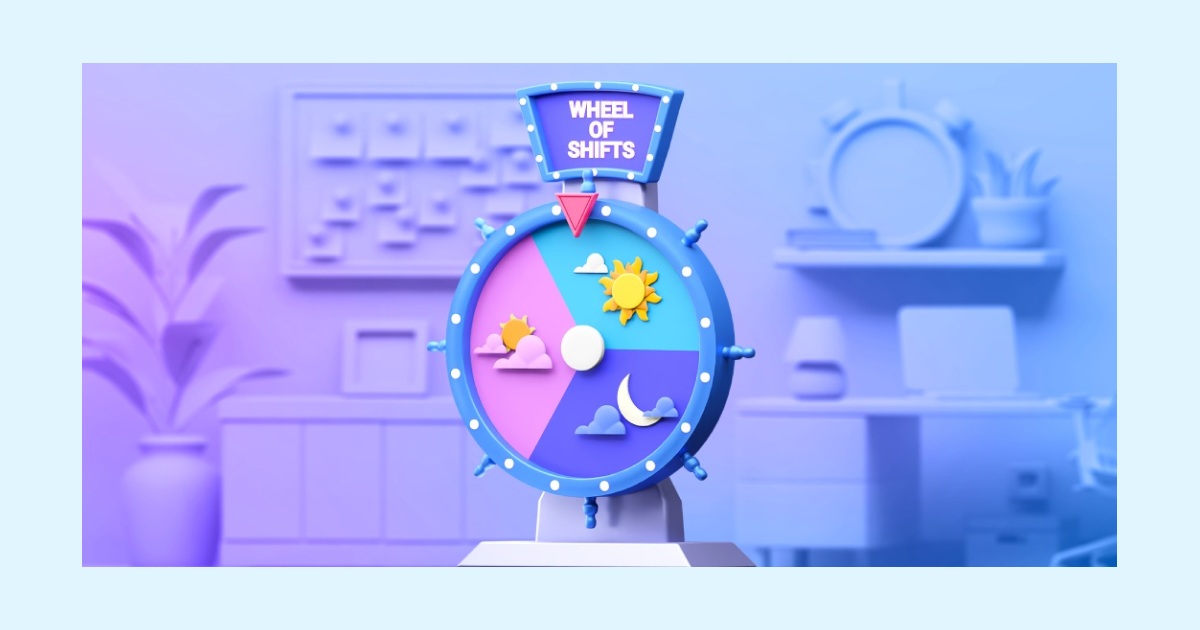The Ultimate Guide to Seasonal Work for 2023
Last updated on: October 27, 2023
Apart from temperature fluctuations, the change of seasons directly impacts the global workforce. Namely, for a limited and recurring period of a year, certain industries need assistance in handling their requests for goods and services. The said need further creates an abundance of temporary job opportunities, also known as seasonal work.
The reasoning behind this type of temporary employment lies in high-volume labor demand in certain regions, industries, and occupations, mostly during the holiday, summer, or winter season.
In the following article, we’ll dissect the topic of seasonal work and cover the following:
- What seasonal work is and how it differs from permanent employment,
- Types of seasonal jobs (the most common industries and occupations),
- Benefits and drawbacks of seasonal work,
- Steps to find a seasonal job, and
- Tips for seasonal workers.

Table of Contents
What is seasonal work?
Put simply, seasonal work is a temporary need for more staff during the busiest seasons of the year. For example, hotels, restaurants, and bars in popular vacation destinations couldn’t handle the holiday season without additional staff.
To meet the need, companies employ temporary workers — it’s usually people who want to supplement their income that apply for the jobs — for a limited period, considered to be a season — usually lasting from a couple of weeks to a couple of months.
By adequately adjusting the size and schedules of their workforce, both seasonal workers and businesses are reaping the benefits of the type of employment. Employers can continue running a successful business, while the seasonal workers gain both the desired money and experience.
💡Clockify Pro Tip
Planning and scheduling your employee shifts can get hectic with a sudden increase in the number of workers. Luckily, business owners can leverage the power of software solutions, such as Clockify scheduling system provides:
What is the difference between full-time and seasonal work?
As the US Department of Labor covers more than a few nuances in rules and regulations for seasonal employment, the differences between full-time and seasonal work can be sorted into 3 main categories of laws:
- The length of employment and employment contract type,
- Employee benefits, and
- Schedule, work hours, and wages.
Let’s dive right into the specifics of each category.
Difference #1: The length of employment and employment contract type
The main difference between seasonal and full-time employment is the length of the employment contract — and, therefore, the employment contract type.
According to the Internal Revenue Service, only one thing’s applicable to all seasonal workers — their duties (per what constitutes a season) must end in less than 12 months, meaning the the law and the IRS cap the maximum duration to up to a year.
There are also categories exempt from the rule — for example, seasonal work in the amusement and recreational establishments. In that case, the maximum period of a seasonal job contract can be 7 months.
Additionally, the seasonal work period can also be extended per the request of the employer. Just as there’s a set of different criteria for freelancers, contractors, and employees, the seasonal worker status is determined by the individual contract.
It’s also noted that working seasons (start and end dates) should be defined as precisely as possible, for the purpose of clear seasonal work agreements.
Difference #2: Employee benefits
It’s important to mention the said employment contract type also determines whether an employee is entitled to benefits, such as:
- Medical and/or dental insurance,
- PTO, vacation, and sick leave, and
- Taxes, credit score, and pension plans.
Even though all seasonal workers’ earnings will count for their future benefits (e.g., retirement plans are based on the total wages, regardless of the exact type of employment), the IRS doesn’t require employers to provide current benefits to seasonal workers. As you can conclude, staying compliant and up-to-date with the requirements of seasonal employment is equally beneficial to employers and employees.
Difference #3: Schedule, work hours, and wages
Clear seasonal work arrangements are equally relevant to business owners and their employees, as they also define the expected work schedules.
Depending on the employers’ needs and the existing number of their permanent employees, what’s offered as a seasonal position can be just filling the gaps of extra shifts. This means that seasonal employees often work on a flexible or rotating schedule.
The total number of hours worked can be any number agreed upon by both parties. And, unlike permanent employees — who are sometimes paid a salary and sometimes an hourly wage — seasonal employees are more often paid by the hour.
💡Clockify Pro Tip
In case you’d like to brush up your knowledge on the US law regarding paid time off, here are a few articles you’ll surely find helpful:
What are the types of seasonal work?
Even though an abundance of variations exists, we can categorize seasonal employment into the following 3 types:
- Freelancers targeting specific areas throughout the year,
- Agricultural, construction, and manufacturing jobs, and
- Tourism, hospitality, and retail jobs.
Let’s explain what those categories are, and which occupations they typically include.
Type #1: Freelancers targeting specific areas throughout the year
Seasonal employment can be especially attractive to freelancers on the lookout for new clients and opportunities. Even though many freelancers work the whole year from the same place, they can choose to include seasonal work in specific periods.
For example, during the holiday season, freelancers who are graphic designers, event planners, or photographers have an abundance of seasonal work opportunities.
The very nature of the freelancing career choice implies the person isn’t tied to a specific company nor has a permanent employer. All their work with clients has a start and end date anyway, and they are familiar with income variability. Freelancers are also already used to not having the benefits that come with full-time employment.
As you can see, any type of freelancing requires embracing non-traditional work arrangements, just as seasonal work does. For this reason, freelancers often engage in temporary job roles during seasonal demand, and all the similarities make seasonal work a great (and popular) option for freelancers and even digital nomads.
💡Clockify Pro Tip
We’re aware that finding work as a freelancer can be a challenge, so here’s a guide that includes a plethora of websites to look for work:
Type #2: Agricultural, construction, and manufacturing
Another common type of highly seasonal employment revolves around physical labor needs in the following 3 categories:
- Agricultural work — includes farming, planting, harvesting, tending to crops and fruit, etc.,
- Construction work — includes landscaping, road construction and maintenance, public space renovations, etc., and
- Manufacturing — includes work in food production plants, storages and warehousing, production packing areas, etc.
Most of these jobs are popular and continuously in high demand during the season, as most positions don’t require specially trained skills or knowledge. Each task is project-based, so once the job is done, what constitutes a season is done for this category.
💡Clockify Pro Tip
Staying on top of your construction crew can be easy, all you need is the right app:
Type #3: Tourism, hospitality, and retail
Peak travel seasons are characterized by a surge of employment opportunities in tourism, hospitality, and retail. Seasonal employment is especially important for popular vacation destinations and historical landmarks, due to the heightened number of tourists and visitors.
Some of the most popular positions include various hotel staff roles, servers and bartenders, tour guides, clerks, and others. The vast majority of those are tipped positions, so they present an amazing opportunity to earn the big bucks.
💡Clockify Pro Tip
Even though certain jobs are tied with the notion of tips, regulations about tipped wages vary by state. To learn more about the topic, check out the following guide:
What are typical seasonal jobs?
Now that we understand the categories of seasonal work, let’s list some common job roles that seasonal employment typically includes:
- Retail sales associates,
- Warehouse workers,
- Restaurant servers and bartenders,
- Kitchen workers,
- Lifeguards and instructors,
- Counselors,
- Workers on farms and fields,
- Gardeners and landscapers,
- Construction workers,
- Event and resort staff, and
- Firefighters.
💡Clockify Pro Tip
If you’re in the construction industry, you must be aware of the importance of accurate bookkeeping. Here’s something you’ll find useful if you’d like to brush up on your accounting basics:
What are the benefits of seasonal work?
Seasonal work offers a wide range of benefits that can be attractive to different individuals and circumstances. We’ve already mentioned several beneficial aspects of the seasonal type of employment throughout the article, now let’s go into more detail.
Here are the 3 key advantages of seasonal work.
Benefit #1: Flexibility
Seasonal jobs often come with flexible work schedules. This can be beneficial for students, parents with young children, retirees, or any other individuals looking to earn extra income during specific times of the year. Embracing such opportunities provides having the flexibility to pursue other interests or commitments during the off-season.
Moreover, seasonal work is typically short-term, so it doesn’t require a long-term commitment. This is a serious advantage for employees who don’t want to commit to a full-time job or who are between careers.
💡Clockify Pro Tip
If you’d like to check out what else is there when it comes to the differences between part-time and full-time employment, here’s an article covering the topic:
Benefit #2: Career exploration and skill development
Seasonal jobs can provide valuable work experience and skills that can be added to your resume. This experience can be especially useful for those looking to enter a new industry or build their work history through gaining new knowledge or a set of skills.
Another thing worth mentioning is that seasonal work varies from year to year, allowing you to try different jobs and industries. This variety can be appealing to those who enjoy new challenges, especially while still defining their career choices.
Furthermore, seasonal employment can and will introduce you to new people and potential contacts in your industry of interest, which is certainly valuable for future job opportunities or business ventures.
Benefit #3: An opportunity to make new friends
We spoke with Zorana Jelicki, a software developer at Clockify, who’s experienced seasonal work for 2 summers. Zorana explained that the bonds she created with other people were what she cherished the most:

“First, you meet new people and because you go through all of this together you make friends for life. Another really good thing about seasonal work is that you know it is going to end, so whatever made me tired or unhappy I knew was not going to last long, so really, I didn’t notice all those things.”
She adds that even working double shifts in a row couldn’t make them skip a hang-out session:

“We were working double shifts for 6 days, and I was having the time of my life. I was staying late having fun with friends and didn’t mind working again in the morning because we were all in this together covering up for each other.”
Benefit #4: Extra income and travel opportunities
Many people take on seasonal work to supplement their regular income or to save up for specific goals, such as holiday expenses or a vacation.
Adding to the point, some seasonal jobs, such as those in tourism or agriculture, may allow you to work in different locations, giving you the opportunity to travel or experience different places. There are also many programs designed to attract workers from other countries in the US but they would have to apply for a specific type of visa — J1.
For example, there’s a Work and Travel type of program which is available to college students outside the US who are not enrolled in their final year of studies. The main purpose of this summer program is for students to experience the US culture through temporary job opportunities.
I was personally in this program during my third year of college, so I spent 4 months working in Alaska. After a period of 4 months, my visa allowed me to spend another month in the US, which I used to explore other states.
It’s an understatement that the experience was a life-changing one, as it was literally an exploration of the new world for me.
As you can conclude, apart from widening your horizons, including such experiences in your resume will later showcase your openness to experience, motivation to grow, and receptivity to new ideas.
What are the drawbacks of seasonal work?
While offering a whole range of advantages, seasonal work can also be a challenge. From cultural shock to the lack of employee benefits, there’s a reason why the majority of the global workforce opts for full-time employment.
The suitability of seasonal work depends on:
- Your individual circumstances (e.g. place of residency and the available opportunities),
- Financial goals and plans for earning or saving money, and
- Career goals and aspirations.
It’s important to weigh the pros and cons and consider how seasonal work aligns with your overall lifestyle and objectives. Let’s check out what some of the major issues with seasonal work are.
Drawback #1: Lack of stability, regular income, and benefits
Seasonal jobs can often provide income only during specific times of the year. Consequently, this can lead to inconsistent earnings, making it difficult to budget and plan for expenses during the off-season.
Moreover, such employees typically don’t have job security, as they may not be guaranteed a position in the next season. It’s an issue that creates uncertainty and financial instability.
We’ve already mentioned the lack of benefits, so let’s quickly revise the issue — many seasonal jobs do not come with benefits such as health insurance, retirement plans, or paid time off. This lack of long-term job security can also make it challenging to save for retirement or plan for future financial stability.
Apart from the finances, we ought to mention another aspect of stability that may be endangered — mental health stability. That’s because, depending on the industry, seasonal workers may encounter busy periods with high workloads and intense stress, followed by extended periods of downtime.
Now, we’ve asked Zorana to put in her 2 cents on the drawbacks of seasonal work as well. As she had some great experiences, she explains that knowing there’s an end of a seasonal job arrangement was the main con for her:

“The advantage and also the biggest disadvantage for me is that the seasonal work is going to end at some point. But one of the biggest downsides for this kind of seasonal work is you cannot know what exactly is waiting for you there, but you can look at it as an adventure and getting out of your comfort zone.”
Drawback #2: Lack of opportunities for career advancement
Seasonal workers often have limited opportunities for advancement within the company where they are temporarily employed. There’s a greater chance that they may remain in entry-level positions, without the proper chance to move up the career ladder.
For this reason, whether they like it or not, employees who are pursuing a career may not find what they are looking for in temporary employment.
Drawback #3: Legal compliance with different employment laws
Legal compliance is crucial for both employers and employees in seasonal jobs. Ensuring that all relevant labor laws and regulations are followed helps protect the rights and well-being of workers and helps employers avoid an abundance of legal issues.
To name a few examples, here’s what both parties ought to pay attention to:
- Wage and hours laws,
- Child labor laws,
- Safety regulations,
- Insurance details, and
- State and local labor laws.
💡Clockify Pro Tip
Navigating employment laws can be a challenge, so here’s a comprehensive list of state-specific laws in the US:
Do seasonal employees get benefits?
As mentioned earlier in the article, seasonal work arrangements differ from full-time, permanent employment contracts. So more often than not, seasonal employment contracts do not include a full range of benefits that comes with permanent employment.
Again, we are talking about health insurance, sick leave, PTO, retirement benefits, etc. Employers are generally not required to provide the same benefits to seasonal employees as they do for full-time employees.
Considering that the majority of seasonal work arrangements are made for a couple of weeks or months only, it makes sense that employers rarely offer benefits.
However, the availability of benefits for seasonal workers can depend on factors such as:
- The employer’s policies,
- The duration of the seasonal position, and
- Compliance with local laws.
So it’s essential for seasonal workers to carefully review their employment contracts or agreements to understand the benefits, if any, that are offered.
How to find seasonal work?
If you know what your goals are and have identified your skills and interests, finding a seasonal job can be a straightforward process. Since the availability of seasonal jobs varies by location and time of year, it’s essential to stay persistent in your job search.
You should be prepared to submit multiple applications and attend interviews, all with the hope of increasing your chances and landing a seasonal job that suits your needs and preferences best.
However, if you don’t have a clue where to start, below are some ideas to help nudge you in the right direction.
#1: Visit local businesses and job fairs
Many local businesses, especially retail stores, restaurants, and hospitality establishments, advertise seasonal job openings with signs that showcase they are accepting applications. Pay attention to those and, even if there’s no sign and you think would be a good fit, it can’t hurt to simply walk in and inquire about available positions.
And, don’t forget to keep an eye on job fairs, which would be the best-case scenario, as all the employers in need of temporary workers will gather there.
#2: Visit nearby employment agencies
There are also agencies specialized in connecting businesses with the staff they need, so they might be able to help you find a seasonal opportunity. Ask about their temporary listings and follow up if they don’t have available positions at the moment.
Another pro tip from Zorana nicely explains why the idea is beneficial, as she also suggests finding agencies for seasonal work:

“If you want to work abroad, it’s best to contact some agencies that can help you with travel, finding accommodation, work opportunities, and thus potential employers. Another great way is to find someone who has already been there to help you with the process.”
#3: Ask for recommendations
Ask around and let your friends, family, and professional contacts know that you are looking for seasonal employment.
Do you know anyone who’s been a seasonal worker? Meet for a coffee and inquire about their experience, ask for recommendations and tips. It’s always good to hear someone else’s perspective.
And sometimes, personal connections are the best way to find out about quality job opportunities.
#4: Use the World Wide Web wisely
Research company websites, government agencies and their listings, and simply Google targeting the right keywords. Don’t forget to make use of job search websites such as Indeed, FlexJobs, CoolWorks, or LinkedIn, which have specific filters to help you find seasonal opportunities.
Tips for seasonal workers
Leaving a positive impression as a seasonal worker is crucial, as it can lead to references, future job opportunities, and a strong professional reputation. Here are some tips to ensure you make a lasting impression.
Tip #1: Get out of your comfort zone and be open to new experiences
Being open to new experiences enriches our lives, broadening horizons and fostering personal growth. It invites us to embrace uncertainty and venture beyond our comfort zones, allowing for valuable learning opportunities, which is the point for many seasonal workers.
Tip #2: Expand your network as much as you can
Just go out there and meet new people, but remember that networking is not just about collecting contacts but also about building meaningful relationships. Be genuine, show interest in others, and offer support when you can.
Over time, your expanded network can open doors to new opportunities and career growth, both within and beyond seasonal employment.
Tip #3: Go above and beyond to leave an impression
Leaving a positive impression is not only about the work you do but also about how you behave, respond to situations, and interact with others. Taking initiative, showing appreciation, and asking for feedback are just a few of the things your approach should include.
By demonstrating professionalism, a strong work ethic, and a positive attitude, you can leave a lasting and favorable impression. Not only that is almost a guarantee you’ll be invited to join the team when the season comes again, but it can also benefit your career in the long run.
Zorana had an interesting insight, adding that going above and beyond can also mean a lot during the application process:

“My best tip is just don’t take no as an answer. I had a friend who worked in a restaurant in 2015 and had a great time there. She told me about it and, because I didn’t have a great experience in the summer of 2015, I was determined to try and work in the restaurant she was working at. Me and my other friend went there 6 times and got ‘No, we don’t need more employees at the moment’ so 7 was our lucky number.”
💡Clockify Pro Tip
The most important thing to remember is that your motivation will determine how good of an impression you leave, so make sure you read this guide carefully:
Tip #4: Take responsibility for staying up to date and complying with the law
Even though it’s usually considered that compliance with the law is up to the employer only, the employment contracts are signed by both parties. That’s why employees, too, must pay attention and carefully examine all the details specified in the employment contract.
Moreover, employers have to deal with all their full-time and seasonal employees, while an employee only with their own. So, if you’re signing a seasonal employment contract, make sure you are on top of relevant laws and regulations as well.
It’s the best way to ensure you’re aware of all the conditions, responsibilities, and potential benefits. On top of that, you can prevent any future misunderstandings and resolve potential issues, as some state or local laws may differ for seasonal workers.
Wrapping up: Seasonal work can result in long-term rewards
As you can conclude, seasonal work plays a dynamic role in today’s job market and offers a number of unique opportunities for both employers and employees. So whether you’re a student looking to earn extra income, a retiree seeking new adventures, or someone exploring a career change, the flexibility and valuable experiences that seasonal employment provides might be just what you need.
Surely, it comes with challenges such as job insecurity and limited benefits, but it offers the chance to develop new skills, expand your network, and enjoy a work-life balance that suits your needs. You can look at it as a stepping stone, a source of adventure, or a way to build your career, it’s up to you.
✉️ Are you a seasonal worker yourself? If you’d like to share any other tips and tricks, or perhaps some additional thoughts on the topic, feel free to write to us at blogfeedback@clockify.me. That way, you’ll get a chance to be featured in this or one of our future articles. And, if you liked this post and found it useful, share it with someone you think would benefit from it.




